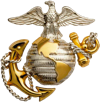Service Branches
Work Environment
Signals intelligence officers work in offices on land and aboard ships. They may work in the field on maneuvers and military exercises.
-
Military Status
Officer
-
Median Military Salary This is the median, or the midpoint, of the salary range for this career.
$125,346
Military Salary Range Salary varies based on years of service, degree level, special pays, family status and location.
$28,354 - $294,189
Overview
Intelligence officers who focus on signals intelligence oversee the collection and exploitation of electromagnetic signals, including communication and non-communication signals. They manage personnel and technical equipment engaged in intercepting, decoding, and analyzing communication traffic for content of possible intelligence value. These officers establish priorities of intercept missions for acquisition of desired data, and coordinate the work to carry out those missions.
Military Training
Officers typically enter the Military after they have completed a four-year college degree; enlisted service members can transition to officer positions through a variety of pathways and earn a degree while serving. Job training for signals intelligence officers primarily consists of classroom instruction and on-the-job learning in various training environments. Like other officers they complete a comprehensive training program covering responsibilities military structure and etiquette traditions and leadership development. Job-specific training content may include:
- Air ground and sea intelligence operations
- Photograph interpretation
- Use of surveillance equipment
- Reconnaissance equipment and weapons systems
- Target identification and operational patterns
- Analyzing communications information using technical references
- Preparing technical and tactical intelligence reports
Helpful Attributes
- Ability to organize and manage activities
- Ability to work with abstract problems
- Interest in analyzing data and solving problems
- Knowledge of communications technology
More careers in this field
See all



















